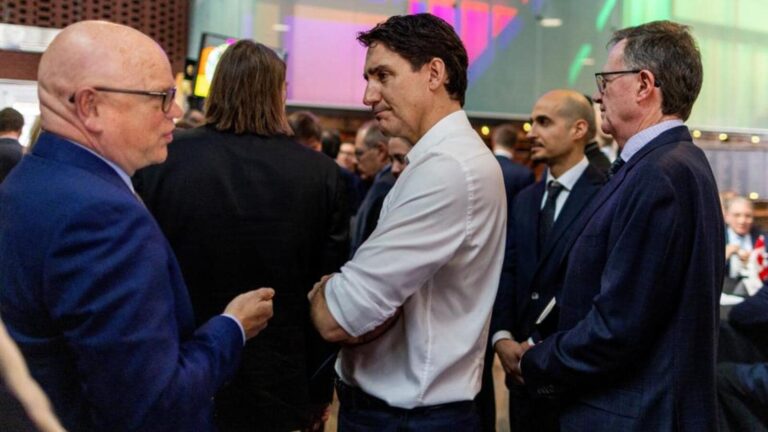Toronto: Canadian Prime Minister Justin Trudeau said US President Donald Trump’s intention is to make Canadian America’s 51st state “real.”

According to a report from Canadian media, while holding the Canadian US Economic Summit in Toronto on Friday, Trudeau said: It absorbs us and puts us in the 51st state. They are very aware of our resources, what we have and they are very hoping that they can benefit from them. ”
“But Trump keeps in mind that it is one of the easiest ways to absorb our country, and it’s real,” he added.
The meeting is expected to decide whether or not Trump will collect a 25% tariff on imports from Canada as Ottawa was held in preparation for the date of March 4th.
Shortly after the November election, Trump had accused Canada of being responsible for the flow of illegal immigration and the deadly drug fentanyl.
Trump announced tariffs would be imposed on February 4th, but the deadline was moved 30 days after the Trudeau government made several concessions, including the appointment of Emperor Fentanyl.
That grace comes after Trudeau spoke twice to Trump the night before the proposed tariffs.
Trudeau posted on X on Monday. “Canada’s new commitments include the appointment of “Emperor Fentanyl,” listing cartel terrorists, ensuring “ignoring at the border 24 hours a day,” and launching a joint Canadian-US strike to combat organized crime Includes: Fentanyl and money laundering. ”
Trump has repeatedly described Canada as the “51st state” of the United States and calls Trudeau the governor. On January 7th, Trudeau replied, “There is no chance of snowman in hell that Canada will become part of the United States.”
The reply came the day after Trudeau stated his intention to resign as prime minister after the ruling Liberal Party leader was elected. The process is expected to be completed on March 9th. But despite the continued leadership race, the parliament remains, a lawsuit that has been criticised by the opposition for ignoring the House amid the national crisis. That pro-rogation is also being challenged by civil liberty groups, with federal courts holding swift hearings on controversial decisions.


